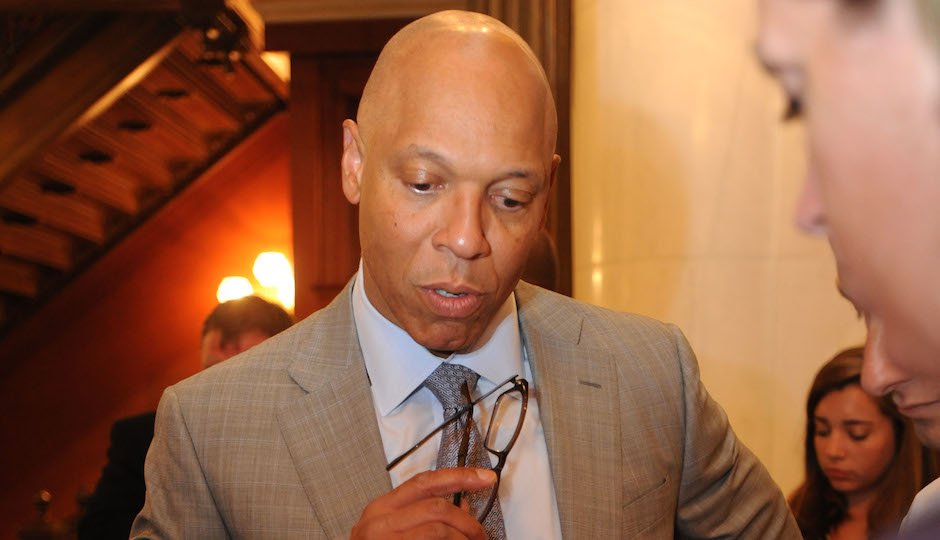Philly Schools Pass Placeholder Budget

William Hite, Superintendent of Philadelphia Schools, in the Pennsylvania Capitol meeting with Philadelphia Mayor Michael Nutter and state legislators seeking funds for Philadelphia Schools during state budget talks Sunday, June 29, 2014, in Harrisburg, Pa. AP Photo | Bradley C. Bower
Philadelphia’s School Reform Commission is now playing a high-stakes game of chicken with the state.
By unanimous vote, the Philadelphia School Reform Commission passed a budget Monday night that includes a $93 million placeholder for money that it hopes comes through if a political logjam in Harrisburg breaks.
Short of that, district leaders say they’d have to choose between laying off 1,300 employees, or shortening the school year.
The district can still avoid the bulk of these cuts if lawmakers in Harrisburg find a way to agree on a few key issues, chiefly, allowing Philadelphia to create a new $2-per-pack tax on cigarettes sold within city limits.
The Pennsylvania Senate did pass the cigarette bill on Monday but there’s apparently no current plans to bring it forward in the House.
The SRC’s unusual budget move, by the way, came with Mayor Nutter’s blessing. The Notebook reports:
In a letter today to the members of the School Reform Commission, Mayor Nutter urges the SRC “to refrain from passing a budget that would include cuts that are so painful that they raise serious questions about whether it is safe to open schools.”
Nutter’s letter to the SRC says that if nothing changes in Harrisburg, the adoption of a state budget anticipated as soon as tonight could leave the District with a $93 million hole. Rather than cutting to eliminate this anticipated deficit, the mayor says, “I urge you to pass a budget that anticipates positive action from Harrisburg as they continue to work to finalize their budget.”
Matthew Stanski, the district’s chief financial officer, presented the SRC with a grim list of cuts that he and Hite were not recommending making now, but that could come back on the table if Harrisburg does not come through with the full $93 million. Beyond the layoffs and class size increases, there would be cuts to alternative education, transportation, school police, and facilities spending.
Though most reductions are being held off, some will happen regardless, Stanski said — about $15 million will be saved in all, mostly through some trims to debt-service costs and special-education services. Officials said they would not fill some vacant special-education teacher positions, and would combine some other employees’ functions


